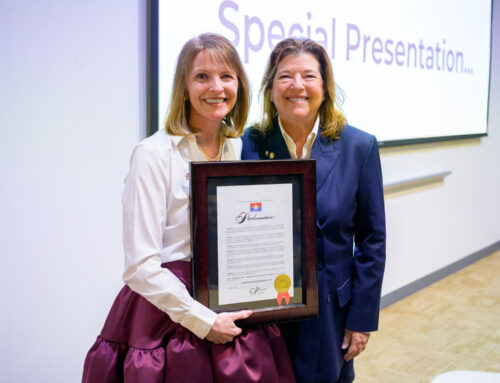He spent more than a decade as a Methodist clergyman, assistant pastor at White Rock Methodist and close friends with Highland Park Methodist Church senior pastor Mark Craig, one of President Bush’s spiritual advisors. But one day, DEE FARAM decided to move into the business of selling medical equipment. Fifteen years later, Faram is the holder of multiple patents on medical equipment he designed.
So, easy first question: How does one end up leaving the church to sell medical equipment?
It was the politics. People don’t understand how much politics go on in churches sometimes, and I was at a point in my life, going through some family stuff, where I just didn’t want to deal with it. A neighbor had been trying to get me to start in the medical equipment business. One day, it just sounded like something new I wanted to try. I still participate in the church, but now only as a lay person. I’m still ordained, but I don’t go to that side.
How did you go from selling the equipment to making it?
Well, I got really obsessed with respiratory medical equipment, to the point where, in 1999, a partner and I started a business where we bought machines that deliver aerosolized medicine, then we’d rent them to patients. But then came the first one I had to pick up because the insurance company decided they weren’t going to pay for it. I said to myself, “Gosh, this kid’s not going to be able to breathe if I take this machine away from him.” So I call my partner and said, “Look, if we get three or four more patients, we can afford to leave this one machine out here without pay. I can’t take it.” My partner said “OK, but that’s it.” The next week, he calls and says, “Alright, you had one, now I get to leave one with someone.” After a few months of this, a business consisting of two guys with no investors, it occurred to us we’d be out of business soon if we were sympathetic and just wanted to help kids breathe.
So you started developing as well as selling?
We decided that if this device were simpler and cheaper, more people could use it. We suggested to the manufacturer that they build a device like that, and when they didn’t, we realized we should.
But how does someone trained in religion develop the know-how to come up with a new device?
The way I see it, if you spend the time, you can learn any subject. I’m also a musician, and the reason I bring that up is, it’s like writing music. Before you write a song, you think: I could never do it. It’s too much of an uphill battle. But once you’ve done it, you think: That wasn’t that hard.
What kind of music do you write?
Country and children’s music. A friend and I were trying to make a living off of it for a while. When it looked like I was going to get married, though, I decided it was time to find a job that might actually pay some actual money.
A tale as old as time.
It sure is.
So where do you go from here?
I’ve even been invited to Duke University to explain the product to their researchers in two weeks, so there’s that. But right now, the devices are in four major hospitals in Texas — Memorial Hermann, Methodist and St. Luke’s Hospitals in Houston, and a children’s hospital in San Antonio. They’ve been there two years, and it’s been a good proving ground for them. They’ve attracted some attention. And once the insurance companies decide they want to pay for them, which they’re looking at, they’ll hopefully take off. We anticipate the insurance companies will probably give them the nod.
Why so confident?
It’ll save millions of dollars in payouts. That’s an important consideration, I think. And the fun part for us is that we make all this money, because we’re businessmen, too, but we get to know that a bunch of people who couldn’t usually afford to breath normally can, because of us. That’s fun.





